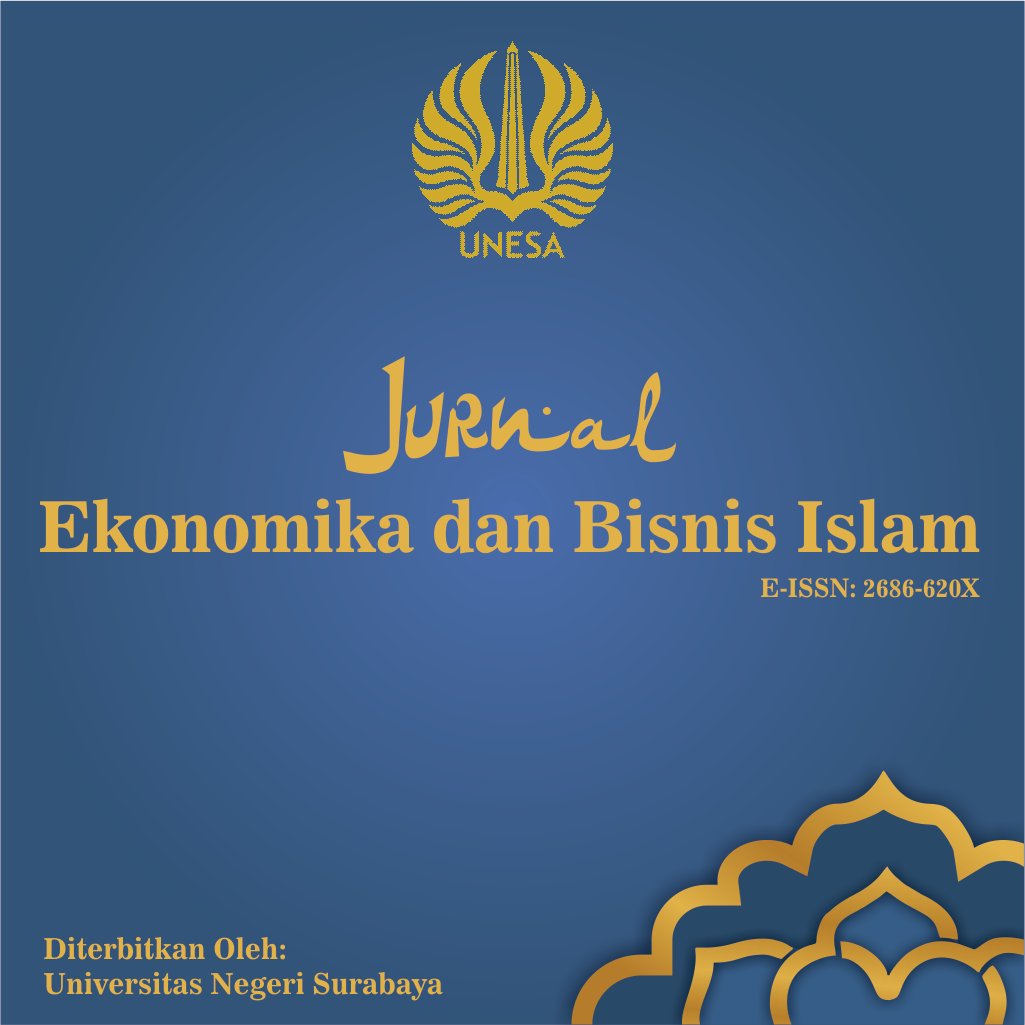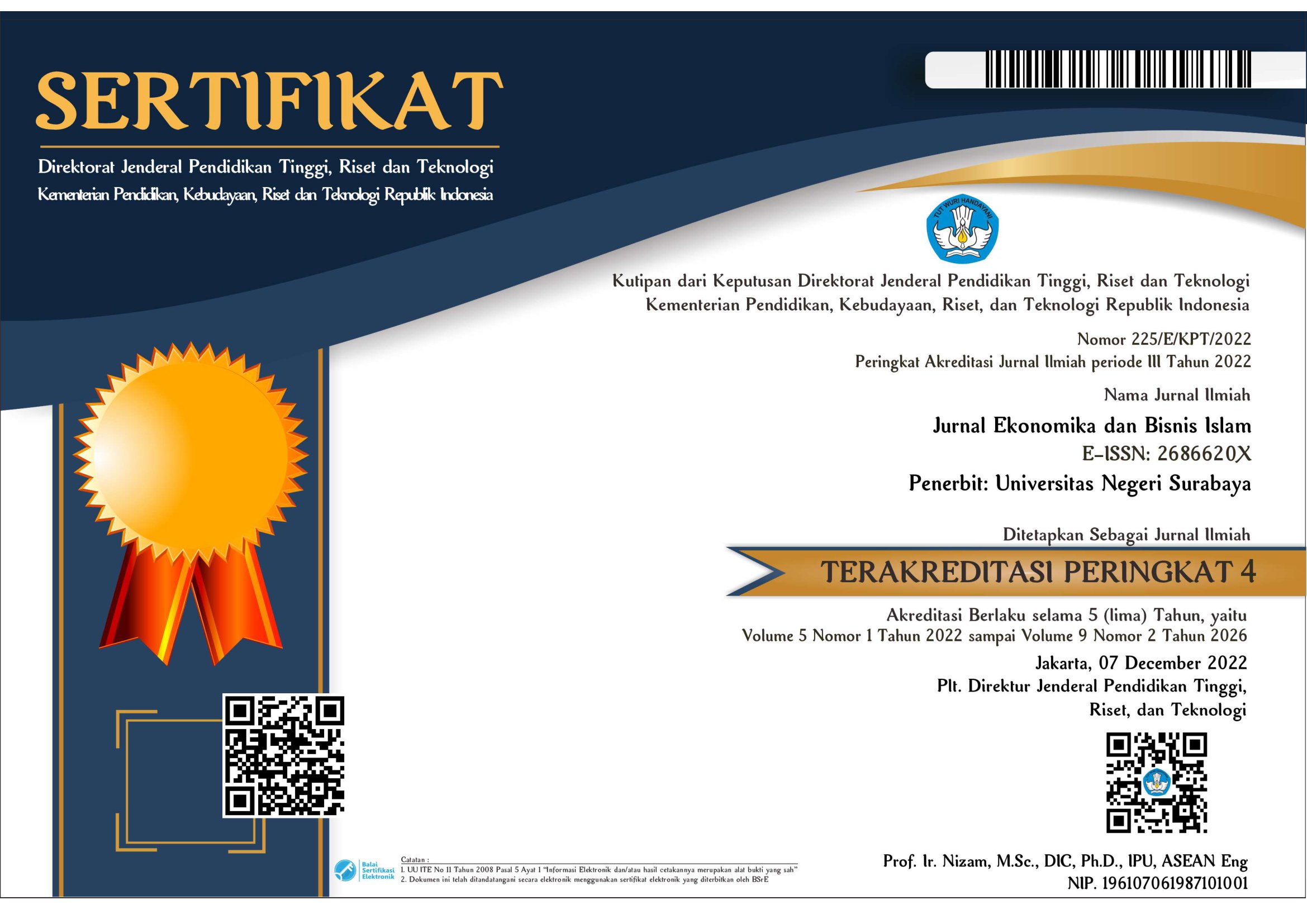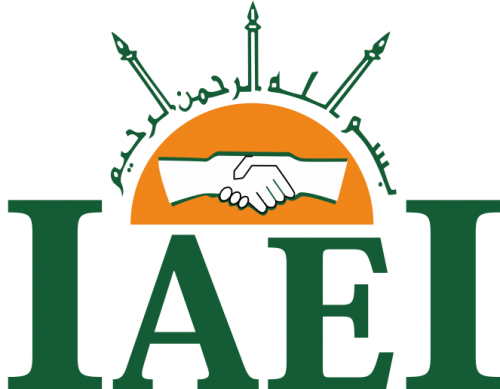Kontribusi Variabel Makroekonomi Terhadap Sukuk Perusahaan di Indonesia Periode 2011-2021
DOI:
https://doi.org/10.26740/jekobi.v5n3.p15-28Keywords:
Corporate Sukuk, Macroeconomic Variables, VECM MethodAbstract
The basis of the research with the issue of research on the condition of corporate sukuk in Indonesia during the pandemic with the aim of describing the condition of macroeconomic variables on corporate sukuk in Indonesia before and during this pandemic, using macroeconomic variables proxied by Gross Domestic Product (GDP), exchange rate, Amount of Money Outstanding (JUB), Indonesian Sharia Stock Index (ISSI), interest rates, and inflation. The method used in this research is descriptive quantitative by analyzing secondary data which is processed using Eviews 10 with the VECM method and using quarterly time series data from 2011-2021. The results of data processing using VECM show several findings, namely: GDP, JUB, interest rates, and inflation variables have a negative effect, while ISSI and the exchange rate have a positive effect on corporate sukuk in the long term, while in the short term they have no significant effect on corporate sukuk in Indonesia. Meanwhile, based on testing using FEDV, the contribution to the growth of corporate sukuk is GDP (0.01%), exchange rate (2.03%), JUB (3.57%), ISSI (0.25%), interest rates (2.41%), and inflation (0.08%).
References
A. Conrad, C. (2021). The Effects of Money Supply and Interest Rates on Stock Prices, Evidence from Two Behavioral Experiments. Applied Economics and Finance, 8(2), 33. https://doi.org/10.11114/aef.v8i2.5173
Anik, A., & Prastiwi, I. E. (2017). Pengembangan Instrumen Sukuk Dalam Mendukung Pembangunan Infrastruktur. Jurnal Ilmiah Ekonomi Islam, 3(03), 173. https://doi.org/10.29040/jiei.v3i03.129
Boediono. (2014). Pengantar Ilmu Ekonomi No. 3 Ekonomi Internasional. BPFE.
Fauzi, A. (2019). Hubungan kausalitas sukuk negara (SBSN) dengan pertumbuhan ekonomi di Indonesia dan Malaysia. Universitas Islam Negeri Sunan Kalijaga.
Karim, A. A. (2015). Ekonomi Makro Islam. Raja Grafindo Pustaka.
OJK. (2020). Laporan Perkembangan Keuangan Syariah Indonesia 2020.
OJK. (2021). Siaran-Pers-Sektor-Jasa-Keuangan-Beroperasi-Normal-dan-Optimalkan-Layanan-Digital-pada-PPKM-Darurat. Ojk.Go.Id. https://www.ojk.go.id/id/berita-dan-kegiatan/siaran-pers/Pages/Siaran-Pers-Sektor-Jasa-Keuangan-Beroperasi-Normal-dan-Optimalkan-Layanan-Digital-pada-PPKM-Darurat.aspx
Panjawa, J. L., & Widianingrum, I. F. (2018). Hubungan Financial Deepening dan Pertumbuhan Ekonomi: Studi Empiris di Indonesia. Jurnal Penelitian, 12(1), 45. https://doi.org/10.21043/jp.v12i1.4131
Qing, Y. K., & Kusairi, S. (2019). The Effect of Money Supply, Exchange Rate, and Interest Spread toward the Performance of Stock Market in Malaysia. Widyakala Journal, 6(2), 142. https://doi.org/10.36262/widyakala.v6i2.217
Sekaran, U. (2019). Metode Penelitian Untuk Bisnis (Kedua). Salemba Empat.
Sugiyono. (2019). Metode Penelitian Kuantitatif, Kualitatif R&D. Alfabeta.
Yuliani, A. E., Fitrijanti, T., & Sari, P. Y. (2020). Sukuk Negara Sebagai Alternatif Pembiayaan Proyek Infrastruktur Di Indonesia: Systematic Literature Review. Jurnal Ekonomi Syariah Teori Dan Terapan, 7(12), 2361. https://doi.org/10.20473/vol7iss202012pp2361-2374
Downloads
Published
How to Cite
Issue
Section
License
Copyright (c) 2023 sandi mulyadi, Icha Apriliza , Asep Suryanto

This work is licensed under a Creative Commons Attribution 4.0 International License.
This work is licensed under a Creative Commons Attribution 4.0 International License.
 Abstract views: 404
,
Abstract views: 404
, PDF Downloads: 521
PDF Downloads: 521














